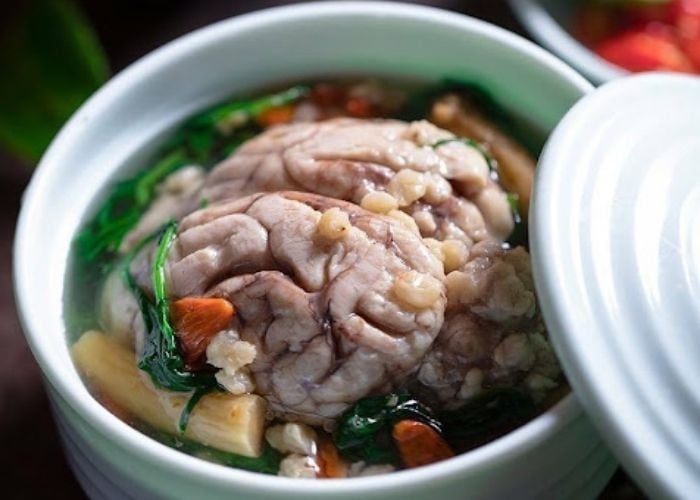Are Pig Brains Good for You?
Pig brains have long been considered a nutritious brain food with high nutritional value. Known for their rich mineral content, including phosphorus, iron, calcium, and other essential nutrients, pig brains offer similar necessary components to pork meat. Notably, the cholesterol in pig brains is believed to have beneficial effects on health. So, are pig brains good for you? The answer is yes.

According to Traditional Chinese Medicine, pig brains have a sweet taste and cold properties. They are believed to be nourishing for the nervous system, helping to alleviate symptoms of nerve weakness and benefiting bone health. These qualities make pig brains an ideal food choice for those seeking nutritional support, especially during the developmental stages of childhood and pregnancy.
With their sweet taste and cold properties, pig brains are considered effective in relieving symptoms of migraines and nerve weakness. For enhanced therapeutic effects, pig brains can be combined with foods like wood ear mushrooms and cordyceps to balance and support overall health.
Pig brains are an excellent source of protein (9g/100g) and fat (9.5g/100g), along with minerals such as calcium (7mg/100g), phosphorus (0.3g/100g), and iron (1.6mg/100g). Notably, they also contain beneficial cholesterol (2.5g/100g) for cardiovascular health. These components not only improve blood circulation to the brain but also enhance memory in the elderly. For pregnant women, pig brains provide essential nutrients during pregnancy.
While consuming pig brains can offer nutritional benefits, it is essential to consider and adjust your intake appropriately to ensure the well-being of your family.

- Due to their high cholesterol content, pig brains should be consumed in moderation, about 1-2 times per week.
- Individuals with a history of cardiovascular disease, high blood lipids, or diabetes should limit their intake of pig brains.
- Choose fresh pig brains from reliable sources and prepare them thoroughly to ensure food safety.
- Combine pig brains with fiber-rich foods like green vegetables and fruits for balanced nutrition.
- For a healthy and balanced diet, consult a nutritionist for personalized advice.
The Secret to Cixi’s Eternal Youth: A Daily Dose of a Familiar Vietnamese Delicacy
“Cixi, the formidable Empress Dowager, was renowned for her intelligence and wit, but what truly astonished people was her seemingly ageless beauty, even at the age of 70. Her secret, it turns out, was deceptively simple: a daily indulgence in a delicacy familiar to the Vietnamese. This humble dish held the key to her timeless appearance, a testament to the power of consistent, thoughtful choices in one’s daily routine.”





































